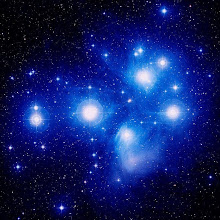 According to the U.S. Geological Survey, earthquakes with a magnitude of 7 or greater take place about 15 times a year. Often these quakes have little effect on human life, but every now and then, as we've seen so recently in Japan, the world experiences a shake-down for the ages. On a cosmic scale, these events are nothing special; it's all part and parcel of a geologically active planet doing its subducting and fault displacement thing. But when they happen where humans have set up shop, "nothing special" has a tendency to turn into all-out "calamity."
According to the U.S. Geological Survey, earthquakes with a magnitude of 7 or greater take place about 15 times a year. Often these quakes have little effect on human life, but every now and then, as we've seen so recently in Japan, the world experiences a shake-down for the ages. On a cosmic scale, these events are nothing special; it's all part and parcel of a geologically active planet doing its subducting and fault displacement thing. But when they happen where humans have set up shop, "nothing special" has a tendency to turn into all-out "calamity."105 years ago today, the world experienced one of those calamitous shakers in the great city of San Francisco, California. My grandfather, age 6 at the time, was right in the middle of it. He was one of the lucky ones.
Every April 18th I get a little nostalgic for what it must have been like in the City by the Bay, back when horse-drawn dreighs were a common mode of transportation and a porterhouse steak would set you back about 75 cents. This morning I watched reels of footage on YouTube from that time. The most compelling was a comparison between a film shot from a trolley making its way down Market Street just four days before the quake with a similar film shot in the dizzying aftermath of the devastation. I was also heartened to discover the reproduction of a magnificent article, first published in 1933, memorializing the city that had fallen: "Shaken to shards in the dawn, gulped in part by a mad sea, swept by flame. Ruin covering agony, crowned by hunger, thirst, fever, pest. Death over all."
After reading that, I decided that I wanted to add to that picture with thoughts from one who was there, in the fire and fury.
My grandfather, Louis Weinstock, Sr., was born in Winnipeg, Canada, to a family of immigrants from what is now Kiev, Ukraine. After the sudden death of his mother from complications of childbirth (as well as of his newborn sister, who only lived about a month), his father—my great grandfather—packed the family up and moved to what was then the 9th most populous city in the union. On the day of the Great Earthquake, my grandfather was just a little kid. Here's what he saw, as recounted some three-quarters of a century later:
It happened on April 18, 1906. I was in bed, and because of the earthquake my bed became jammed against the door. I called for help in moving the bed. My father, [step]mother, and sister came to my rescue. My father moved our beds to the shop, where we all slept cross-wise. We lived very near the Golden Gate Park. The Army set up tents at the park.It's astonishing to me to think that a boy of six lived through this catastrophe, which claimed the lives of several thousand and left homeless more than half the population of 400,000; moved across the country to New York; and grew up to have a full, adventurous life, three children of his own, and five grandkids, including little old me. Last fall I returned to San Francisco and thought a lot of my grandpop, who passed away when I was a little girl. I explored the areas and streets he'd talked about from that time, and I even took a ferry over to Oakland/Alameda the same way he did more than a century earlier to flee a burning city. Amazing what time can do, isn't it? ∞
I was chosen to go to the Park to fetch food, which was being distributed there. Going to get the food was a big adventure for me. People sat at the curbs and would ask, “Where’s the fire now, how far’s the fire?” The government had requisitioned all the food. The markets were all closed, except the bakeries, which kept working. The papers—Examiner, Tribune—kept publishing, although with reduced editions.
All the trains in the country gave preference to relief effort. There was a lot of destruction, but the worst destruction came with the fires. The water mains broke and the fires could not be put out. They reached all the way to Van Ness Avenue, which became a fire breaker.
Because of the earthquake, we became refugees. One of my uncles got a dreigh, a wagon with big wheels. He then made reservations for the ferry to Oakland/Alameda/Berkeley. We put the whole family’s belongings and took off. As we went by a burning building we whipped the horses to go fast. Right after we went past this building I looked back and the building collapsed.
Why did we go to Alameda? I don’t know. We just got out as soon as possible.


